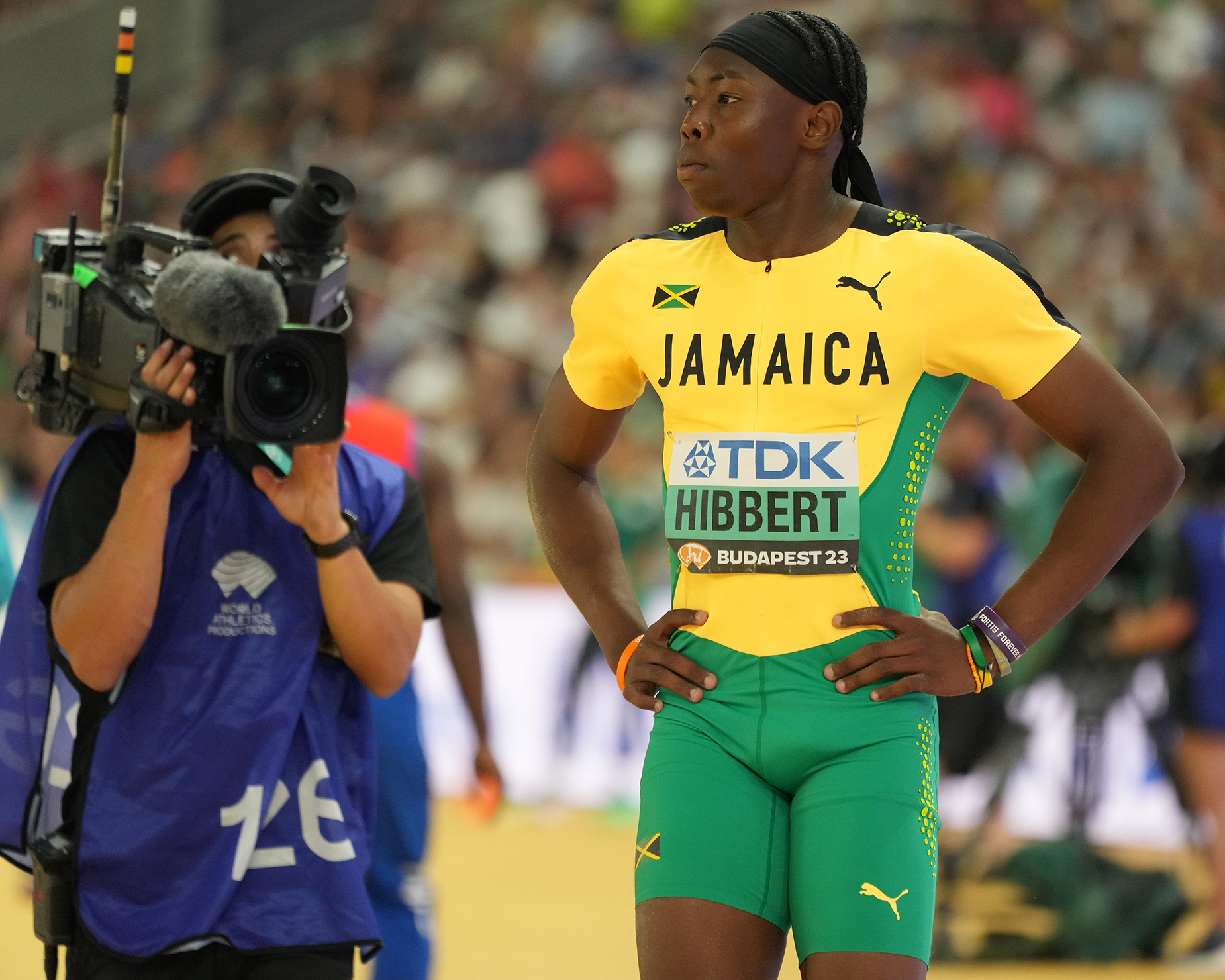By Vijay, TrackAlerts.com writer
Howard Jacobs, attorney for Veronica Campbell-Brown, said the “mandatory and required collection procedures’ were not followed in the athlete’s sample collection.
It was behind this Jacobs said Campbell-Brown didn’t get off on "a technicality, but fundamental point."
On February 24, the Court of Arbitration in Sports (CAS) cleared Campbell-Brown, who wastested positive at the Jamaica Invitational in May 2013, to resume her career.
Jacobs, who was speaking on Friday at a press conference arranged by Campbell-Brown’s team, said when the athlete provided her sample on May 4, she was unable to provide a complete sample on one attempt.
“Because she wasn’t able to, its called under the WADA rules a partial sample and there are very specific rules for how a partial sample collection is supposed to go. The most important thing in anti-doping, you have to know that the integrity of the sample was maintained from the start of the process because if you cant guarantee the integrity of the sample then nothing after that matters because you cant say that its her urine or that the sample wasn’t tampered with.”
According to Jacobs, “lead Doping Control Office (DCO) Dr. Paul Wright testified that he knew what the mandatory procedures were, but that WADA told him that JADCO didn’t need to follow the procedures. There was nothing in writing so we knew that was not true.”
Also, Jacobs said, “the DCO testified that the standards were not followed and that that she could not prove that the samples were not tampered with.
Also, the chaperone, Jacobs said “was not only Veronica’s chaperone, she was the chaperone for other athletes as well and there were many times that she as not with Veronica. She also said that she collected three partial samples, she testified to that multiple times but Veronica testified that it was only two and in fact she has never provided three partial samples.”
“The question remained, what happened to the third sample,” pointed out Jacobs, while adding “even though the rules say the first sample should have been sealed, there was no seal used in this case instead the partial sample was left open and unsupervised.”
“The whole point of these procedures is to ensure that the integrity of the sample is maintained, its one of the fundamental points of anti-doping and it was one of the primary points in this case,” said Jacobs of the main point of defence.
Meanwhile, Campbell-Brown issued a warning to Jamaica Anti-Doping Commission (JADCO), saying "I think prudence would be better in furthering the cause of a clean sport rather than public outburst, which are factually empty. Rules are to be respected by athetes and leaders alike. Running into the foreign press to say that you are waiting with excitement for the IAAF’s response to a public warning does not inspire confidence to lead towards a healthy national anti-doping organisation."












